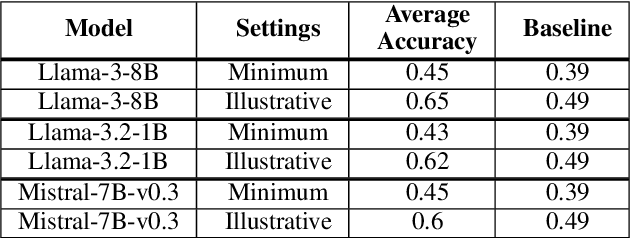Understanding the Logical Capabilities of Large Language Models via Out-of-Context Representation Learning
Paper and Code
Mar 13, 2025



We study the capabilities of Large Language Models (LLM) on binary relations, a ubiquitous concept in math employed in most reasoning, math and logic benchmarks. This work focuses on equality, inequality, and inclusion, along with the properties they satisfy, such as ir/reflexivity, a/symmetry, transitivity, and logical complexity (e.g., number of reasoning ``hops''). We propose an alternative to in-context learning that trains only the representations of newly introduced tokens, namely out-of-context representation learning. This method mitigates linguistic biases already present in a model and, differently from in-context learning, does not rely on external information or illustrations. We argue out-of-context representation learning as a better alternative to in-context learning and fine-tuning to evaluate the capabilities of LLMs on logic tasks that are the building blocks of more complex reasoning benchmarks.
 Add to Chrome
Add to Chrome Add to Firefox
Add to Firefox Add to Edge
Add to Edge